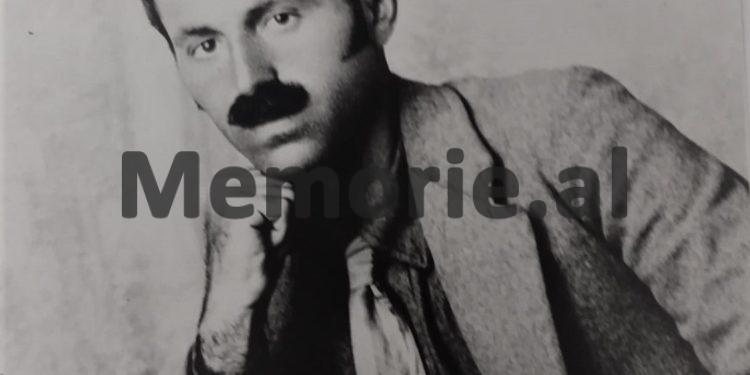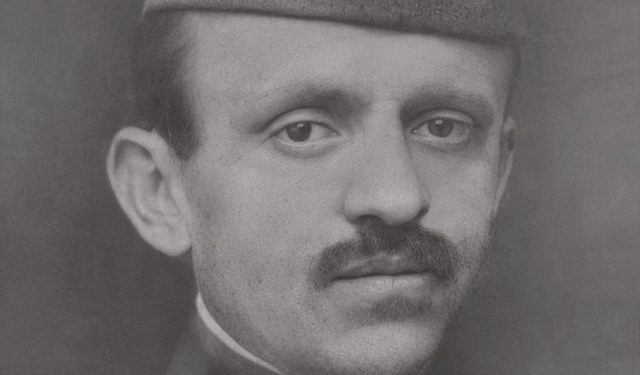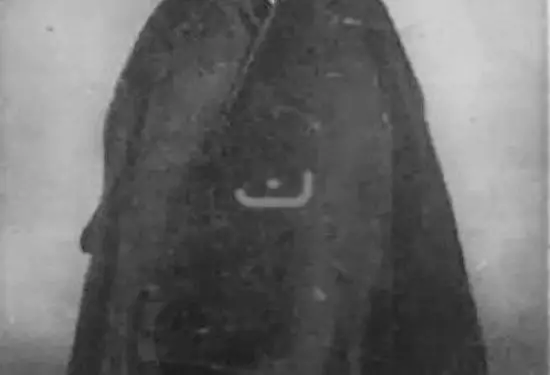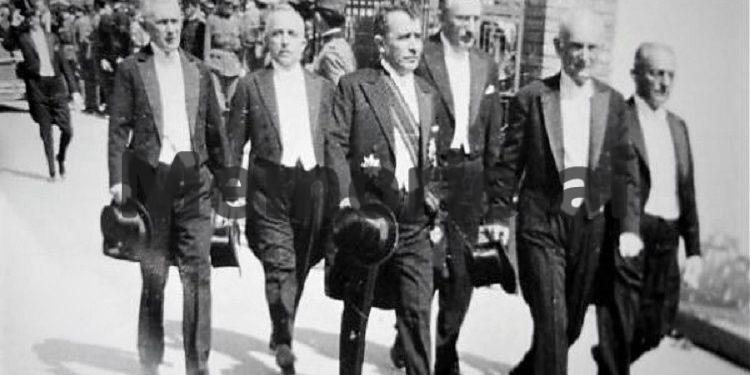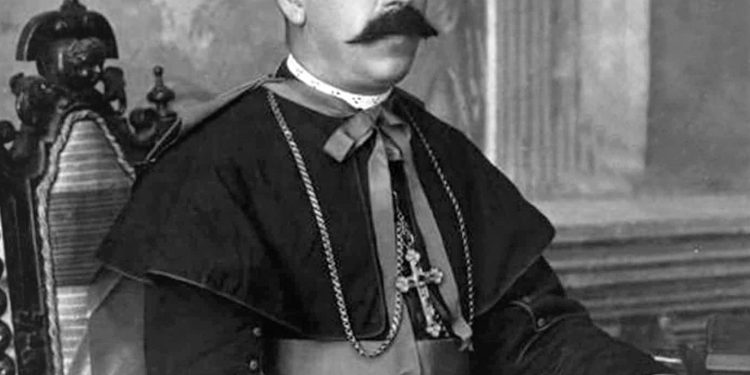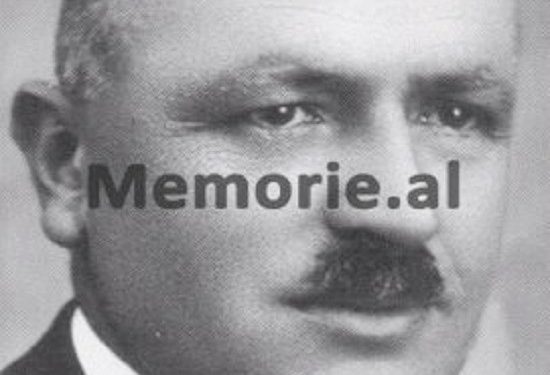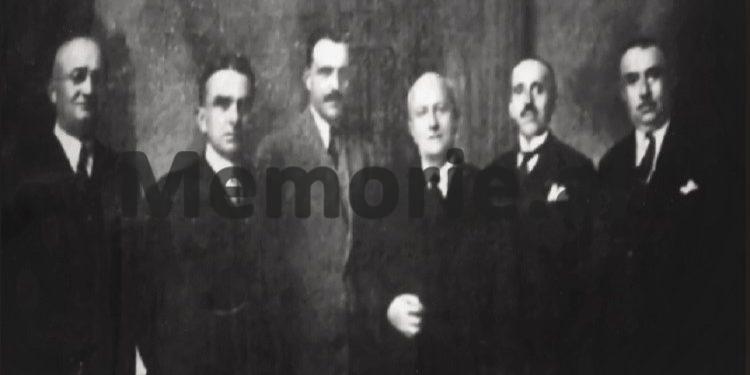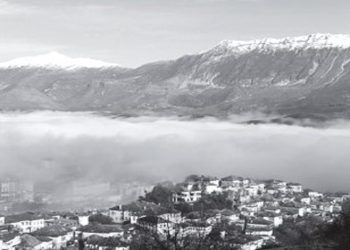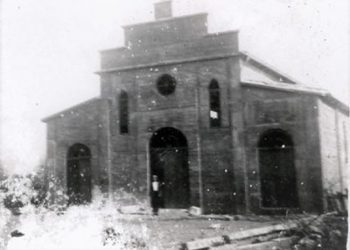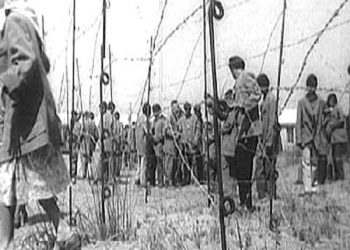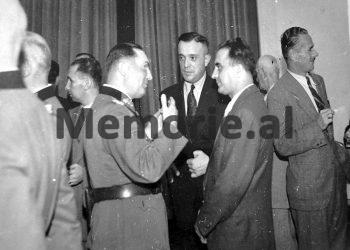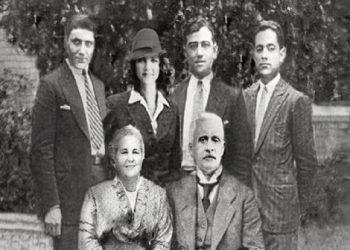By Hamid Gjylbegaj
The fourth part
HISTORICAL EVIDENCE 1912 – 1925
(Some biographical memories of Hamid Gjylbegaj)
Memorie.al / I were born in Shkodër on March 1, 1888. I received my first lessons in my hometown, in the Turkish, Mejtepe and military schools. I finished the last year of the military gymnasium in Manastir, from where I went to the Military Academy of Turkey, in Istanbul. After finishing school, I was appointed a lieutenant in the Fifth Corps of the 13th Division of the 38th Regiment of Thessaloniki, where I served until October 1912. During this time I fought in Kumanovo, Prelep, Bitola (where I was wounded twice) and finally in the Castle of Ioannina, in Bizhan, until February 28, 1913. For military actions during the war, as a distinguished officer, I was prematurely promoted to the rank of lieutenant. I entered the military history of the Balkan War as the first officer in the world to discover, on the basis of ballistics science, that the German 7.50 mm field automatic cannons, compared to the French 7.50 mm. were inferior. It was a technical mistake by the Germans, who made the cannon barrels 25 cm. shorter than the French cannons, which later, in the First World War, was also discovered by the Chief of Staff, General Ludendorff. My report on this matter is in the military archives of Turkey. With the surrender of the Ioannina Castle on March 6, 1913, the entire Turkish high command, of which I was also a part, was taken prisoner of war. As a prisoner of war, I spent seven and a half months on the island of Zanta (Zaqinthon). With the signing of the Peace Treaty, in October 1913, I moved to Istanbul.
Continues from last issue
First election (April 1921)
Before the elections, according to the law on candidacy for deputy, I resigned as an officer. However, Ismail Haki Tatzati with the “Clique”, Sulçebegu, Ahmet Zogu and the great clergy tried to prevent me from becoming a deputy. In fact, it was done well, because legal treason (manipulation) was done on all four sides.
Later, the Mirdita incident broke out. The state was in a tight spot and had no strength to support it, so the Minister of War, Selahedin Shkoza, asked me to return to service, as I had a loan in the Puka Mountains. I answered that I was ready to perform the task that my country asked me to do, but first they had to ask the commander of the Division, Ali Pasha Kolonje. Since they did not accept me to enter the service, I was not activated.
Saladin gave me the right. Bajram Curri also sent me word from his side to go as a delegation to negotiate with the Mirdita priest, but this time I did not accept.
The meeting with Avni Rustem. Autumn 1921
After returning to Albania, Avniu came to Shkodër where he was received with honors by various societies, especially the Catholic part. On this occasion, together with Sezai Chomon, they came for a visit to my house. Sezaiu, during the time of the Turks, had been a schoolmate of mine in Shkodër.
In the above conversation, they proposed to me that we go out together to the northern mountains to organize the youth and popular crowds for the defense of Albania’s borders. I told you that I was not in an economic condition, because according to the custom of the country, wherever we went together among the mountains, the highlanders would wait for us, but I had to give those gifts, because I was known in those places as Hamid Gjylbegaj, big house and former vice prefect. For this reason I could not go out with them.
When I told him this reason, while he teased me by saying that I was old, Avniu said that this problem was solved, because the Albanian colonies had donated 10 thousand francs, and he could use these. When we ran out of money, we would return, I to Shkodër and Avni to his place.
In the conversations we had, I told Avnia that according to our principle, after he had completed his duty, he should leave Albania, because he was in blood with the Toptans. I suggested that he go to America, where he would finish university and collaborate with the society “Vatra” and in the newspaper “Dielli” and support the Albanian cause. He supported my opinion, because he had respect for me as a patriot.
After we prepared, we took the road to Puka, where Bajram Curri was also located, who had come with his own forces to participate in the Mirdita operation. We spent the first night in the chapel of the church near Vau t Deja. With us were Ragip Kajo Begolli and a gendarme that the state had given to Avni as a personal guard.
Speaking to the priest, Avni was interested in knowing the causes of Mirdita’s uprising. In the ongoing conversation, the priest stated that in order to calm Mirdita, they had to get along with Monsignor Gjergj Kolec, the Bishop of Zadrima, since the diocese of Mirdita depends on him. In this way, it was clearly understood that the Catholic Clergy had a hand in this uprising.
The next day we set off for Puka, before arriving there, I received a telegram from the Ministry of War, where they informed me that I had been appointed as a technical officer at the Commission of the League of Nations who had come to see the borders and to designate the area neutral.
I showed the telegram to Avni. He was very happy that I had been appointed to this task, because he had full confidence that I performed it best.
Appointment as technical officer in the Commission of the League of Nations
During the time when Mirdita was up and the operations were in action, representatives of the League of Nations came to observe the border and set the neutral line of Albania’s borders. The political representative of our state was Mehdi Frashëri, while I was the technical officer.
After completing this task, I was appointed inspector and organizer of the borders of the country. When the topographical map of the border line determined by the Conference of Ambassadors arrived, I was ordered by the state to take over the border. It was I who for the first time raised the Albanian flag in Vermosh and took the initiative, together with the archbishop of Shkodra, Dom Lazër Mjeda, for the definitive establishment of a Catholic Church in Vermosh.
Meanwhile, the Yugoslavs entered the neutral zone by smuggling and taking wood from the forest of Lulash Pepaj Kastrati. Based on the decisions of the Conference of Ambassadors, no neighboring country had the right to enter the neutral zone, neither to buy, nor to sell, nor to rule, until the boundary line was definitively determined.
For this reason, I did not allow the Yugoslavs to enter to get wood in this area. The Yugoslav Consul Vugotic intervened with the prefect of Shkodra, Reuf Fico, to allow them to take the wood.
The prefect and Rexhep Shala called me and ordered me to allow the taking of wood so that there would not be a border incident. I refused because they had no right to interfere in this matter. I was the eye of the state, in determining the border, and the border event would be created if I allowed them to take the wood.
On the occasion of the November 28 holiday, a regimental parade was held in Shkodër, which was organized according to German regulations. I was also invited to this parade, as were all the heads of offices.
On this marked day I was assigned to deliver the speech of the occasion, a speech for which the Yugoslavs protested to Zogu, who at that time was associated with Pashiq. For political opportunism, I was fired and appointed battalion commander in Elbasan.
As soon as I received the transfer order, I handed over the office and left for the new task. By chance in Tirana, I met Ismail Haki Tatzati and Xhaferr Ypi, who was the Minister of Justice. Tatzati told me that I had gone too far with Yugoslavia, insulting it with inappropriate words, in the speech I had given on the occasion of November 28.
I told him that I had done the task. I was an officer educated with moral laws, and military education that charged me and forced me to show and teach my soldiers the traditional enemy of our nation.
In the speech that I delivered, I said: “Today I have the honor, for the first time, to speak on the day of the flag, in front of the Albanian regiment, in the former garrison of Turkey, where foreign armies have passed through, under the shadow of to our national flag, which the venerable Ismail bey Qemali raised in Vlora, maybe I will have the white fortune to keep my word another time in this barracks, when Kosovo, which today is dying under the violence of the Slavic race, is together with us, under the shadow of this holy flag”.
This is what I said and not what you say, I told Tatzati and Ypi. “I did not know that you are so strongly connected with the Yugoslavs, as to worry about what the Albanian officer says in front of his soldiers. I am not one of those officers who damage the political line of the Albanian State. If I have damaged it, give me the passport to go to South America”.
Service in Elbasan as battalion commander
Upon arriving in Elbasan, I took over command of the battalion. He lived in private rented houses and in a half-ruined barracks. The discipline and conduct of the officers was completely destroyed.
Before this situation, I had two tasks. The first was to provide shelter to the battalion and the second was to restore the discipline and dignity lost by the bad behavior of the officers.
With the help of the people, soldiers and officers, I rebuilt the barracks without taking a single ALL from the state, work for which the state thanked me in the “Official Journal”. I paid all the debts that the battalion had before, and in this way I brought the battalion to military discipline and dignity.
When he came to Elbasan, Mehdi Frasheri, as Foreign Minister, the prefect of Elbasan brought him to the barracks, showing him all my efforts, for which he thanked me.
At the time I was a battalion commander in Elbasan, the Yugoslav state asked the Albanian state to destroy the neutral zone and take over the border, based on the ratified border line, and together with our commission, the placement of the border pyramids.
For this job, I received a coded telegram in the middle of the night, where I was asked to appear the next day in Lin i Pogradec, to take delivery of the border. Arriving at Lin according to the order given by the Ministry of War was impossible; however I set out for the appointed place.
When I arrived in Librazhd, I got in touch with Pogradec and they informed me that the Yugoslav consul, who was going to Korca, had informed Pogradec that their commission would arrive after three days. In Pogradec I received their delegation, and the two parties joined in Lin.
The first action we did was to check the topographic maps if they coincided with each other. The boundary lines were fine, both theirs and ours. But their map had a deficiency, it did not have the topographical data of the terrain and the border could not be applied with it. Then they were forced to work on the map provided by our state.
The part of our border up to hill 114, near Rrajca village, I handed over to the prefecture of Korça and the sub-prefecture of Pogradec. The part from Rrajce to Zerqan was defended by the battalion of Elbasan.
For two weeks I stayed in Yugoslavia as an attaché of the Albanian state. When I got this job, I went back to my job in Elbasan.
A few weeks after this action, a Pogradec gendarmerie lieutenant filed a lawsuit in the Gendarmerie General Command, where Shefqet Korça was the commander, denouncing that smuggling was done in Lin and along the Pogradec lake shore, and accusing that it was done in know the Elbasan battalion command.
The gendarmerie command forwarded this indictment to the Ministry of Internal Affairs, Ahmet Zogut, to take the necessary measures against the commander of the Elbasan battalion, Hamid Gjylbegaj. The Ministry forwards this indictment for punishment to the Ministry of War, Ismail Haki Tatzati, and the latter sends it to me, warning me and asking me for clarification about this smuggling.
As soon as I received the letter, I immediately replied to the Ministry of War: “I am ashamed to register such an accusation in the battalion’s archive, because it is a shame for the Albanian state that you up there do not know the regions of the gendarmerie, nor the districts of sub-prefectures and prefectures, accept the opinion of an ass officer of the gendarmerie of Pogradec, to whom contraband passes through his nose, and accuse the battalion of Elbasan, to whom this region does not belong at all”.
After this event, all the country’s authorities came to me, such as the prefect, the command of the gendarmerie, to ask me where the borders of the regions were. I directed them to their superiors who should clarify the problem.
Marriage
In Elbasan, I married Mrs. Neire, the daughter of Mehmet bey Xheladin bey Abdulla Pasha, Taushanllinj. However, the various parties gave this marriage a political meaning, presenting it as a connection with the Beylers of Central Albania. The slander, antagonism and war against me began. In this case, the Ministry of War sentenced me to 30 days of arrest, on the pretext that I had not received legal permission as an officer, to marry. Memorie.al
(Prepared by Dr. Shefqet Deliallisi)
The next issue follows




